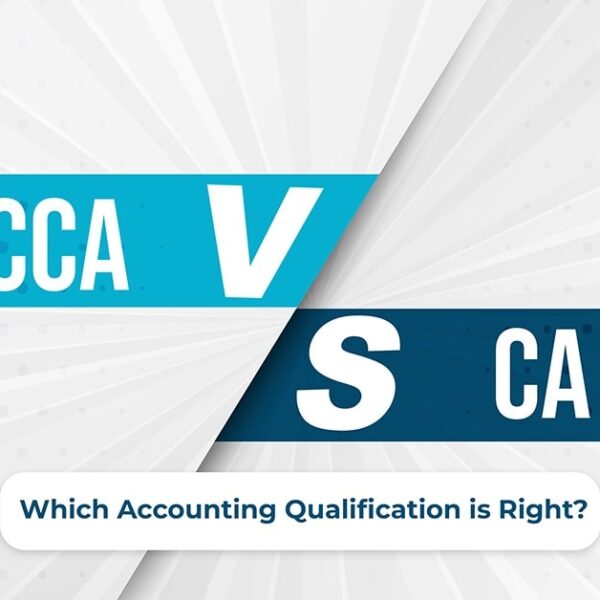Luxembourg, with its status as a global financial hub and home to numerous multinational companies, offers exceptional opportunities for accounting professionals. This comprehensive guide outlines the pathway to becoming a qualified accountant in this dynamic European financial centre.
The Luxembourg Accounting Landscape
Luxembourg’s accounting profession operates within a sophisticated financial ecosystem:
- Home to over 125 international banks
- Europe’s largest investment fund centre
- Host to numerous multinational corporation headquarters
- A thriving corporate services sector
- Significant audit and accounting firms
This environment creates substantial demand for qualified accountants across various specialisations, from financial reporting to audit, tax, and fund accounting.
Educational Foundations
The journey to becoming an accountant in Luxembourg typically begins with appropriate educational qualifications:
Secondary Education
A strong foundation in mathematics and business studies at secondary level provides an excellent basis for accounting studies.
University Education
Most accounting professionals in Luxembourg hold at least a bachelor’s degree in:
- Accounting
- Finance
- Economics
- Business administration
- Related quantitative fields
The University of Luxembourg offers relevant programmes, though many practitioners also come with qualifications from institutions in neighbouring countries or further afield.
Postgraduate Options
While not mandatory, many Luxembourg accountants enhance their credentials with:
- Masters in Accounting or Finance
- Specialised diplomas in Luxembourg tax or fund administration
- MBA programmes with financial specialisations
Professional Qualifications
In Luxembourg, several professional certifications provide the credentials needed for accounting career advancement:
ACCA Qualification
The Association of Chartered Certified Accountants (ACCA) qualification is highly regarded in Luxembourg. The pathway involves:
- Registration with ACCA
- Completion of up to 13 examinations across three levels
- Ethics and Professional Skills module
- 36 months of relevant practical experience
ACCA is particularly valued for its global recognition and comprehensive coverage of accounting, audit, tax, and financial management.
Alternative Qualifications
Other respected accounting certifications in Luxembourg include:
- Chartered Accountant (ACA/CA) qualifications from various national bodies
- Certified Public Accountant (CPA) for those with US backgrounds
- Luxembourg-specific qualifications like the Diplôme d’études spécialisées en audit
Registration Requirements
Certain accounting roles in Luxembourg require official registration and recognition:
Réviseur d’Entreprises (Statutory Auditor)
To perform statutory audits in Luxembourg, professionals must:
- Hold a relevant master’s degree
- Complete the Luxembourg certificate in business and company law
- Undertake three years of professional training
- Pass the Luxembourg statutory auditor examination
- Register with the Commission de Surveillance du Secteur Financier (CSSF)
Expert-Comptable (Accountant)
To practice as an expert-comptable, requirements include:
- Membership of the Ordre des Experts-Comptables (OEC)
- Appropriate accounting qualification
- Professional experience in Luxembourg
- Good standing and ethical commitment
Language Requirements
Luxembourg’s multilingual business environment creates specific language expectations:
- English: Essential for international firms and ACCA studies
- French: Widely used in business and regulatory documentation
- German: Valuable for certain sectors and client relationships
- Luxembourgish: Appreciated though rarely required professionally
Most accounting roles require proficiency in at least two of these languages, with English and French being the most commonly expected combination.
Career Entry Routes
Several pathways lead into Luxembourg’s accounting profession:
Graduate Programmes
Major accounting firms and financial institutions offer structured training schemes:
- Typically two to three years in duration
- Rotation across different departments
- Support for professional qualification
- Mentorship from experienced practitioners
Direct Entry
Experienced professionals from other countries often secure direct entry into Luxembourg accounting roles, particularly those with:
- Relevant sector expertise
- Professional qualifications
- Language capabilities
- EU citizenship or appropriate work permits
Internships
Student internships often serve as gateways to permanent positions:
- Summer placements with accounting firms
- Year-long positions as part of degree programmes
- Project-based internships with financial institutions
Specialisation Options
Luxembourg offers various accounting specialisations:
Fund Accounting
Supporting Luxembourg’s position as a leading investment fund centre:
- NAV calculation and verification
- Financial reporting for complex fund structures
- Regulatory compliance for investment vehicles
- Investor reporting and communication
Banking Sector Accounting
Serving Luxembourg’s significant banking industry:
- Financial reporting under IFRS
- Regulatory reporting to banking authorities
- Treasury and financial instrument accounting
- Risk management and compliance support
Corporate Accounting
Supporting Luxembourg’s role as a holding company location:
- Group consolidation
- Transfer pricing
- International financial reporting
- Multi-jurisdiction compliance
Tax Specialisation
Navigating Luxembourg’s specific tax environment:
- Corporate taxation
- International tax structures
- VAT and indirect taxation
- Tax compliance and reporting
Professional Development
Continuing growth is essential in Luxembourg’s rapidly evolving financial sector:
Continuing Professional Development
Most accounting qualifications require ongoing CPD:
- ACCA mandates 40 hours annually, including 20 verifiable hours
- Regular technical updates on regulatory changes
- Soft skills development for career progression
- Industry-specific knowledge enhancement
Professional Networking
Luxembourg’s compact size creates excellent networking opportunities:
- Industry associations and professional bodies
- Financial sector conferences and seminars
- Chamber of Commerce events
- Expatriate professional communities
- Alumni networks from qualification providers
Advanced Certifications
Experienced accountants often pursue specialised certifications:
- Luxembourg tax certifications
- Fund governance qualifications
- Digital finance and fintech credentials
- Sustainability reporting specialisations
Working Environment and Conditions
Accounting roles in Luxembourg typically offer:
Compensation
Luxembourg provides attractive remuneration:
- Starting salaries for qualified accountants typically €50,000-70,000
- Senior positions commanding €80,000-120,000+
- Partnership and director roles potentially exceeding €150,000
- Additional benefits including healthcare, pension, and sometimes housing allowances
Work-Life Balance
The profession offers varying balance depending on role:
- Audit positions with seasonal intensity during busy periods
- Industry roles often providing more consistent schedules
- Flexible working increasingly available post-pandemic
- Luxembourg’s statutory 26 days annual leave plus public holidays
Career Progression
Typical advancement pathways include:
- Junior to senior accountant (2-3 years)
- Manager roles (5-7 years post-qualification)
- Senior manager and director positions (8-12 years)
- Partner or CFO opportunities for exceptional performers
Challenges and Considerations
Aspiring Luxembourg accountants should consider:
Regulatory Complexity
Luxembourg’s financial environment features:
- Complex regulatory frameworks
- Multiple reporting standards
- Cross-border compliance requirements
- Frequent regulatory updates
Competitive Environment
The market for top accounting talent is competitive:
- International candidates vying for premium positions
- Emphasis on language capabilities alongside technical skills
- Increasing expectations for digital and analytical competencies
- Premium placed on Luxembourg-specific knowledge
Relocation Practicalities
For those moving to Luxembourg:
- Housing costs among Europe’s highest
- Excellent but expensive educational options
- High quality of life with corresponding costs
- Efficient transportation links to European capitals
The Future of Accounting in Luxembourg
Several trends are shaping the profession’s evolution:
Digital Transformation
Technology is transforming accounting practices:
- Automation of routine processing
- Advanced data analytics capabilities
- Blockchain applications in audit and assurance
- AI-assisted compliance and reporting
Sustainability Focus
Luxembourg’s green finance initiative impacts accounting:
- ESG reporting requirements
- Sustainable finance disclosure regulations
- Carbon accounting expertise
- Green investment fund specialisation
Regulatory Evolution
Ongoing developments in:
- International tax frameworks
- EU financial regulations
- Transparency requirements
- Anti-money laundering provisions
Becoming an accountant in Luxembourg offers an exciting career journey in one of Europe’s most dynamic financial centres. With the right educational foundation, professional qualifications, language skills, and commitment to ongoing development, accounting professionals can build rewarding careers across the Grand Duchy’s diverse financial ecosystem.








